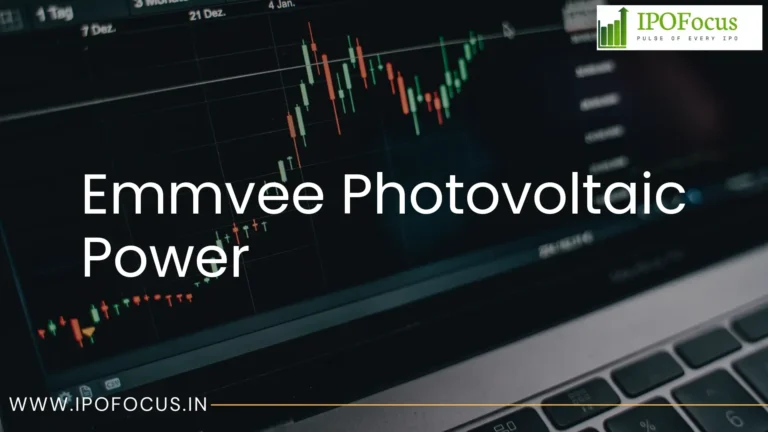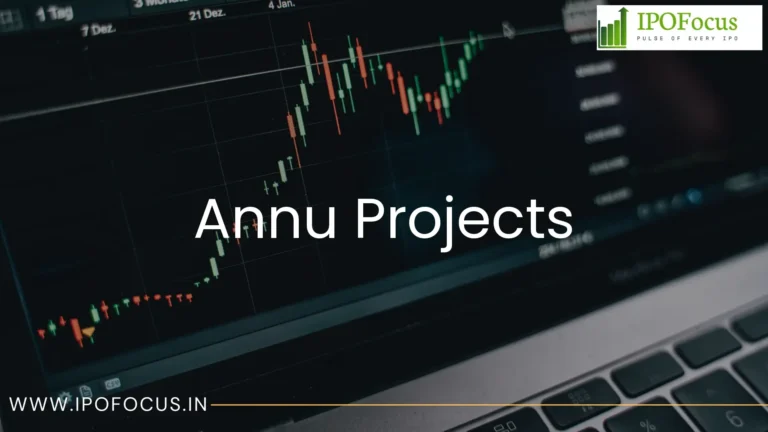Upcoming IPOs in 2025, IPO Launch Schedule, New IPO Listings

Upcoming IPOs 2025 Schedule
How IPO Launch Schedule works?
SEBI mandates a structured process for IPO approvals and listings. Below is a general timeline followed for IPOs in India:
- IPO Announcement & SEBI Approval – Companies submit a Draft Red Herring Prospectus (DRHP), which is reviewed and approved by SEBI.
- Subscription Period – Investors can apply for IPO shares during the open subscription period, typically lasting 3-5 days.
- Basis of Allotment & Refunds – Shares are allotted based on demand, and refunds are processed for unallocated applications.
- Listing on NSE & BSE – After finalization, the IPO is listed on the National Stock Exchange (NSE) and Bombay Stock Exchange (BSE) for public trading.
Our real-time IPO calendar keeps you informed about IPO launch dates, subscription timelines, and listing schedules.
Understanding the Fundamentals of an IPO
- An Initial Public Offering (IPO) is when a company gets listed on a stock exchange and offers its shares to the public. The process begins with filing a Draft Red Herring Prospectus (DRHP) with SEBI, which includes financial details, risks, and business strategies. Once approved, the company releases the Red Herring Prospectus (RHP) with final details.
- The IPO price is set by the company and the issue is open for 3 to 5 days, allowing retail investors, Qualified Institutional Buyers (QIBs), and Non-Institutional Investors (NIIs) to subscribe. After the subscription period, allotment is finalized, and unsuccessful applicants receive refunds.
- On the listing day, the company’s shares debut on the stock exchange, and the opening price is determined by market demand. Investors can then trade shares in the open market.
Significance and Role of IPOs
An Initial Public Offering (IPO) transforms a private company into a publicly traded firm, bringing several advantages.
- Becoming a Public Company
Going public boosts a company’s market reputation and credibility, making it more attractive to investors and stakeholders. - Capital Expansion
IPO funds help businesses repay debts, finance growth, and invest in new projects, ensuring long-term stability. - Brand Visibility
A public listing increases brand awareness as IPOs attract media coverage and investor attention. - New Investment Opportunities
An IPO introduces the company to new investors, employees, and strategic partnerships, fueling further expansion. - Enhanced Trust and Market Position
With stronger financial oversight, an IPO improves a company’s credibility, governance, and transparency, making it a preferred choice for institutional and retail investors.
IPO Investment Guide: How to Apply for an IPO in India?
Investing in IPOs requires a Demat account and a bank account enabled for ASBA (Application Supported by Blocked Amount). Here’s a step-by-step guide to applying for IPOs in 2025:
- Check IPO Details – Review financials, price band, lot size, and issue size.
- Apply Online via UPI/ASBA – Use your broker’s platform or net banking for a hassle-free application.
- Allotment & Listing – Wait for SEBI’s basis of allotment process and track the listing date.
Retail investors should analyze the GMP (Grey Market Premium) and subscription data before applying.
SEBI Regulations & Eligibility for IPO Investment
To safeguard investors, SEBI has outlined strict eligibility criteria for IPO investments:
- Retail Investors – Can apply for IPOs with a maximum investment of ₹2 lakh per application.
- HNI (High Net-worth Individuals) – Can apply above ₹2 lakh, but with different allotment rules.
- QIB (Qualified Institutional Buyers) – Mutual funds, insurance firms, and banks with large-scale investments.
Always refer to SEBI-registered prospectuses before investing in an IPO.
Upcoming IPO – FAQs
What are Upcoming IPOs?
Upcoming IPOs are initial public offerings by companies that are preparing to list their shares on the stock exchange. These companies offer their shares to the public for the first time, allowing investors to buy into the company’s growth and development. Upcoming IPOs typically generate significant interest from both retail and institutional investors.
Who Can Invest in an IPO?
Both retail and institutional investors can invest in an IPO. Retail investors are individuals who invest smaller amounts, while institutional investors include entities like mutual funds, pension funds, and banks. Retail investors must meet certain eligibility criteria, including a valid PAN card and a Demat account.
Steps to Apply for an IPO
- Open a Demat and Trading Account with a registered broker.
- Check IPO Details on the official stock exchange or from a brokerage firm.
- Fill in the IPO Application Form and choose the number of shares you wish to apply for.
- Submit the Application along with your payment via the prescribed payment methods (e.g., ASBA).
- Wait for Allotment after the IPO subscription closes.
How to Increase Your Chances of IPO Allotment?
To increase your chances of IPO allotment, consider applying through multiple applications, either as an individual or with family members (if allowed). Additionally, applying in the retail investor category and offering your application with a higher bid amount may improve the likelihood of receiving an allotment. It's important to apply early and avoid submitting multiple applications with similar details.
Prerequisites for Applying for an IPO
- A Demat Account and Trading Account with a registered broker.
- A valid PAN card for identification purposes.
- A valid bank account to make payments.
- Knowledge of ASBA (Applications Supported by Blocked Amount) if applying through the ASBA process.
- Sufficient funds in the bank account to cover the bid amount.
Do We Need a Demat Account to Invest in an IPO?
Yes, a Demat Account is required to hold the shares you purchase in an IPO. This account electronically stores the shares in your name. Without a Demat account, you cannot receive the allotment of shares after applying for an IPO.
What is the Minimum and Maximum Investment in an IPO for Retail Investors?
- The minimum investment for retail investors is typically 1 lot, which will be below fifteen thousand rupees, depending on the IPO price.
- The maximum investment for retail investors is generally capped at Rs. 2 lakh in the retail category, after which applications fall under the HNI (High Net-worth Individual) category.
What is DRHP?
DRHP (Draft Red Herring Prospectus) is a preliminary document filed by the company with the Securities and Exchange Board of India (SEBI) before the IPO. It provides details about the company’s business, financials, management, and risks. The DRHP is reviewed by SEBI, and once approved, it leads to the RHP.
What is RHP?
RHP (Red Herring Prospectus) is the final version of the prospectus filed with SEBI, following the approval of the DRHP. It includes detailed information about the IPO, such as the issue price, date, number of shares, and other crucial details needed by investors to make informed decisions.
What is the Difference Between DRHP & RHP?
- DRHP (Draft Red Herring Prospectus) is a draft document filed with SEBI to gauge interest in the IPO.
- RHP (Red Herring Prospectus) is the finalized version that contains confirmed details about the IPO, such as the issue price and share allocation.
What Needs to Be Kept in Mind Before Investing in an IPO?
- Understand the company’s business model, financials, and growth prospects.
- Check the company’s valuation to ensure it's reasonably priced.
- Read the RHP carefully for any risks or red flags.
- Be aware of market conditions and how they might affect the IPO’s performance.
- Understand the lock-in period (if any) and your exit strategy.
- Be prepared for market volatility, especially in the short term.
Can I Apply for IPO Without a Demat Account?
No, a Demat Account is mandatory for receiving IPO allotments. It is needed to store the shares electronically. Without a Demat account, you cannot participate in the IPO process.
Are IPOs a Good Investment?
IPOs can offer significant returns, especially if the company performs well after listing. However, they also carry risks, such as market volatility and overvaluation. It's essential to do thorough research and evaluate the company’s financial health and growth potential before investing. IPOs can be a good investment for long-term investors, but caution is advised for those seeking short-term gains.
What is the Role of SEBI in IPOs?
SEBI (Securities and Exchange Board of India) is the regulatory body that oversees the entire IPO process. SEBI ensures that companies follow all legal requirements and disclosures, providing investors with the necessary information to make informed decisions. It aims to protect investor interests and maintain market transparency.
How Are IPO Prices Decided?
The IPO price is decided through one of two methods:
- Fixed Price Method: The price is decided by the company and disclosed in the RHP.
- Book Building Method: The company sets a price band, and investors bid within this range. The final price is determined based on the demand for shares.
IPO News
![]()
Free Equity Delivery & MF
Flat ₹20 Per Trade in F&O





